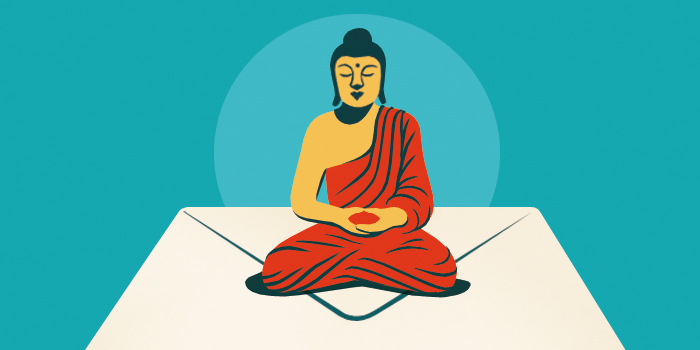Do secular dharma communities have spiritual leaders?

Secular Buddhist writer and thinker Stephen Batchelor addresses a crowd. | Matthew Abrahams
Secular dharma practice does not require a teacher or religious leader in the same way that traditional Buddhist schools do. This is based in part on the teachings of Siddhartha Gautama (Pali: Siddhattha Gotama) himself. The notion that we each need a guru, or teacher, predated Buddhism, appearing in the earlier Indian religious texts the Upanishads. Gautama, however, eschewed this idea, suggesting in the Pali canon that we instead find good spiritual friends (kalyanamitta) who can help us tread the eightfold path as we become self-reliant in our practice.
The Buddha envisioned a community that would collaboratively develop his teachings without an authority figure. In the Kalama Sutta, he explicitly warns against believing something “because my guru said it,” and he told his followers before he died, “After I am gone, do not think you will have no teacher; the dharma will be your teacher.”
Proponents of secular dharma believe that large organizations and charismatic leaders are not necessary, and see those with more experience and wisdom as spiritual friends rather than as people to be venerated for their achievements. By placing value in the teachings rather than the teacher, secular practitioners also hope to avoid the abuses that can result from hierarchical spiritual environments.
Secular Buddhists typically prefer to come together in small, supportive communities, either face-to-face or online. Driven by a shared purpose and ethic, these predominantly lay communities associate on democratic terms, informed by an ethos of inclusivity and equality. Communities share authority and responsibility among peers, because they are all considered to be capable of understanding and practicing the four tasks, taking responsibility for their own practice, and being a spiritual friend for others.
The San Francisco-based Insight Meditation teacher Eugene Cash suggested that the three jewels, which are traditionally listed as the Buddha, dharma, and sangha, are more useful for Westerners in reverse order. Secular dharma communities might agree, observing that people first come to see what the community is like, then look into the practices and teachings, and only if they like what they see do they finally inquire about the role of the Buddha and the innate human capacity for awakening.

Tricycle is more than a magazine
Gain access to the best in sprititual film, our growing collection of e-books, and monthly talks, plus our 25-year archive
Subscribe now